Introduction: The Growing Importance of Judgment Skills and Decision Making in a Complex World
In today’s fast-paced and information-saturated environment, the ability to make effective, thoughtful decisions has become one of the most crucial competencies for personal and professional success. Whether evaluating career moves, choosing healthcare options, or navigating interpersonal relationships, judgment skills and decision making stand at the core of our ability to thrive. Yet, with the constant bombardment of information and heightened mental fatigue, maintaining sharp mental clarity can be a challenge. Interestingly, natural remedies—specifically herbs—are being increasingly explored as a means to bolster cognitive functions essential for strong judgment making.
You may also like: Navigating Life: Anxiety’s Impact on Decision-Making
This article dives into the top herbs renowned for enhancing judgment skills and decision making, offering evidence-based insights and practical advice on how these natural ingredients may sharpen mental clarity. We will also explore how these cognitive enhancements tie into concepts like the 5 steps of decision making, the 7 step decision making process, and answer essential queries like “what is the third step in the decision making process?” or “how many steps are in the decision making process?” Prepare for a detailed, SEO-optimized journey into the world where nature and cognition beautifully intersect.
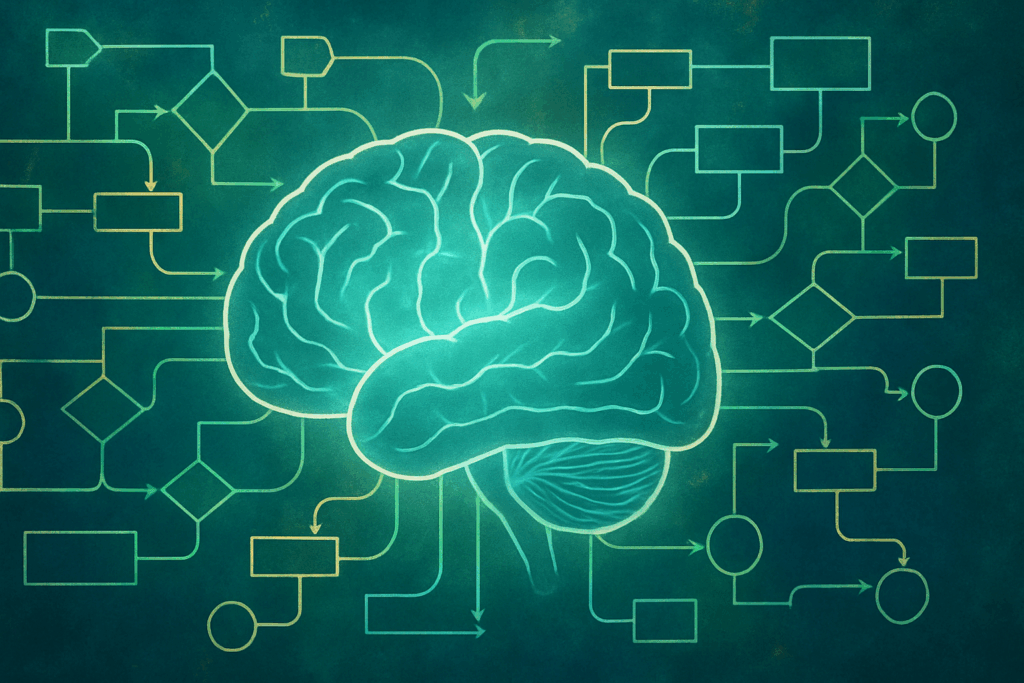
Understanding the Core of Judgment Skills and Cognitive Decision Making
Before exploring specific herbs, it is essential to understand the foundation of judgment skills and decision making. Judgment skills refer to the cognitive ability to evaluate information, weigh alternatives, and foresee potential outcomes with accuracy and foresight. Good decision making is related to being able to manage emotional responses while systematically analyzing facts. In many cases, decision making at work examples demonstrate how quick, clear thinking can be the difference between project success and failure.
In cognitive psychology, the decision making process is often broken down into distinct steps, such as the 5 stages of decision making process or the more detailed 7 steps of decision making. Learning how many steps are there in the decision making process offers a framework for analyzing choices logically and systematically. The development of decision making, therefore, hinges not just on acquired knowledge but also on cognitive sharpness, emotional regulation, and sometimes—nutritional support.
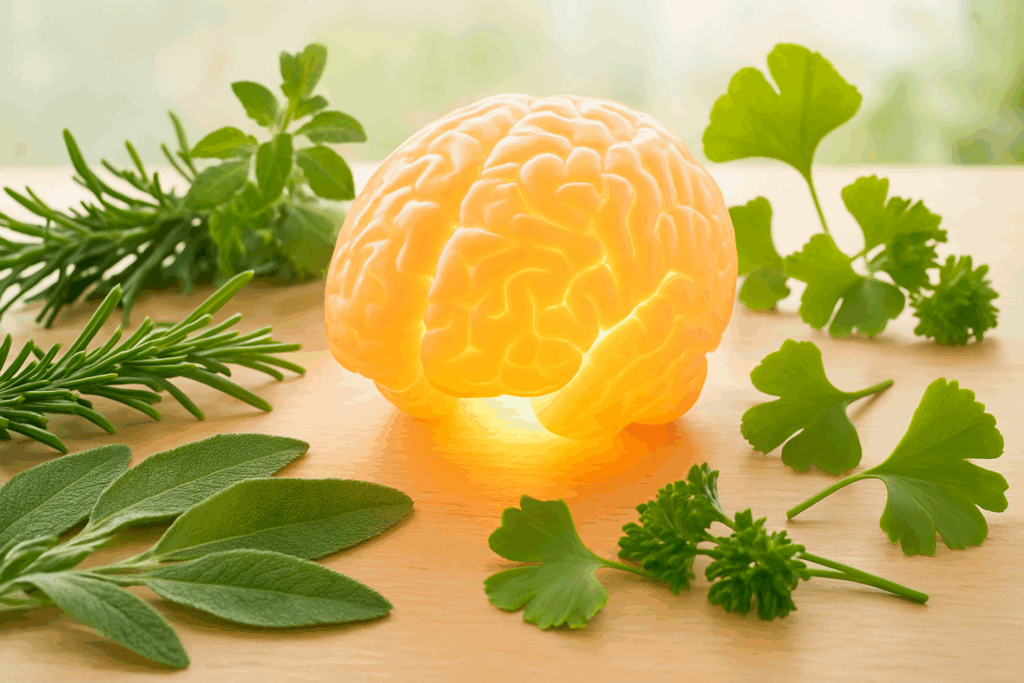
How Nutrition and Herbal Medicine Support Brain Function
There is mounting scientific evidence suggesting that certain natural herbs and foods can positively affect brain function. When considering what you read for exams or how to remember things while studying, the nutritional state of the brain plays an undeniable role. Key neurotransmitters responsible for focus, memory, and clarity are often sensitive to nutrient availability. Consequently, supporting brain health with herbs becomes a practical, natural strategy.
Herbs traditionally used in Ayurvedic, Traditional Chinese Medicine, and Western herbalism often contain compounds that enhance circulation to the brain, reduce oxidative stress, modulate neurotransmitter systems, or directly support neuronal plasticity. As we explore these herbs, keep in mind their potential role in boosting your ability to make decisions effectively and improve your judgment skills overall.
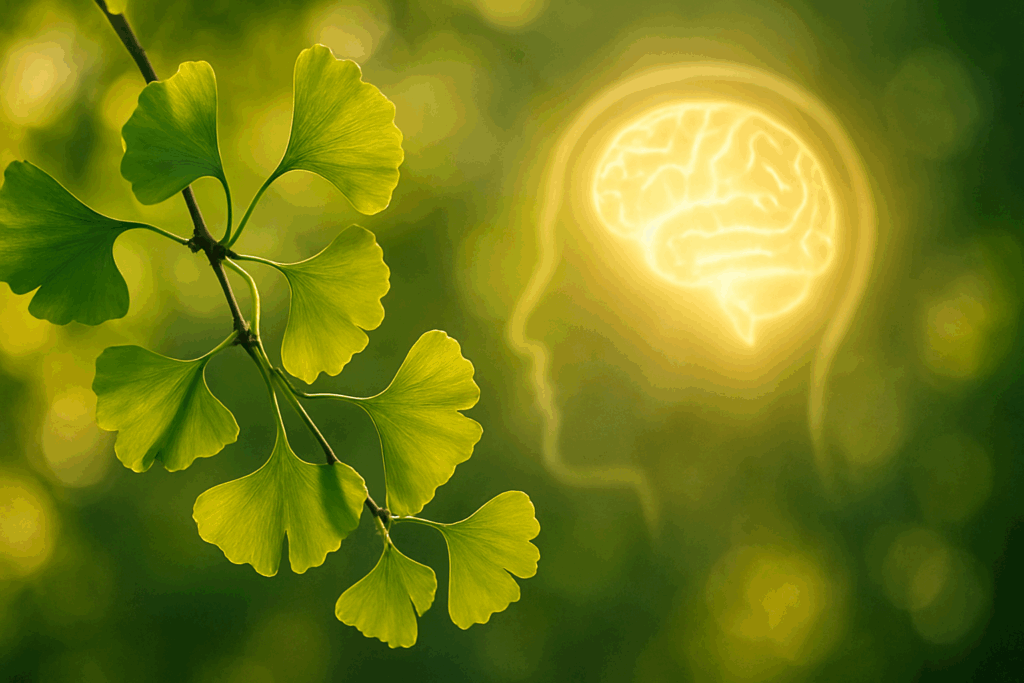
Ginkgo Biloba: The Ancient Guardian of Mental Clarity
Ginkgo biloba, one of the oldest surviving tree species, has been lauded for centuries for its effects on memory and cognitive function. Modern research supports its use in promoting better blood flow to the brain, thus enhancing oxygen and nutrient delivery. In the context of judgment skills and decision making, Ginkgo appears to enhance the brain’s information processing speed, crucial for weighing options swiftly and accurately.
When trying to master how to memorize something for a test or understand which step comes first in the decision making process, optimal cerebral blood flow and neurotransmitter balance are key. Studies show that consistent use of Ginkgo biloba can lead to improvements in tasks requiring rapid judgment making and sustained focus. Whether navigating the seven steps in the decision making process or improving reaction times in high-stress environments, Ginkgo stands out as a time-tested herbal ally.
Bacopa Monnieri: The Memory Herb for Precision Thinking
Originating from the Ayurvedic tradition, Bacopa monnieri is a powerful nootropic herb known to enhance memory recall, processing speed, and learning capacity. This herb is particularly beneficial when pondering how to remember stuff when studying or working through the eight steps in the decision making process.
Bacopa works by enhancing synaptic communication between neurons and upregulating proteins associated with long-term memory formation. For those looking to improve their judgment making or deepen their understanding of the five decision making steps, Bacopa offers profound cognitive support. Its adaptogenic properties also help manage the stress that often clouds clear judgment, ensuring that decisions are made from a place of calm rationality rather than impulsive reactivity.
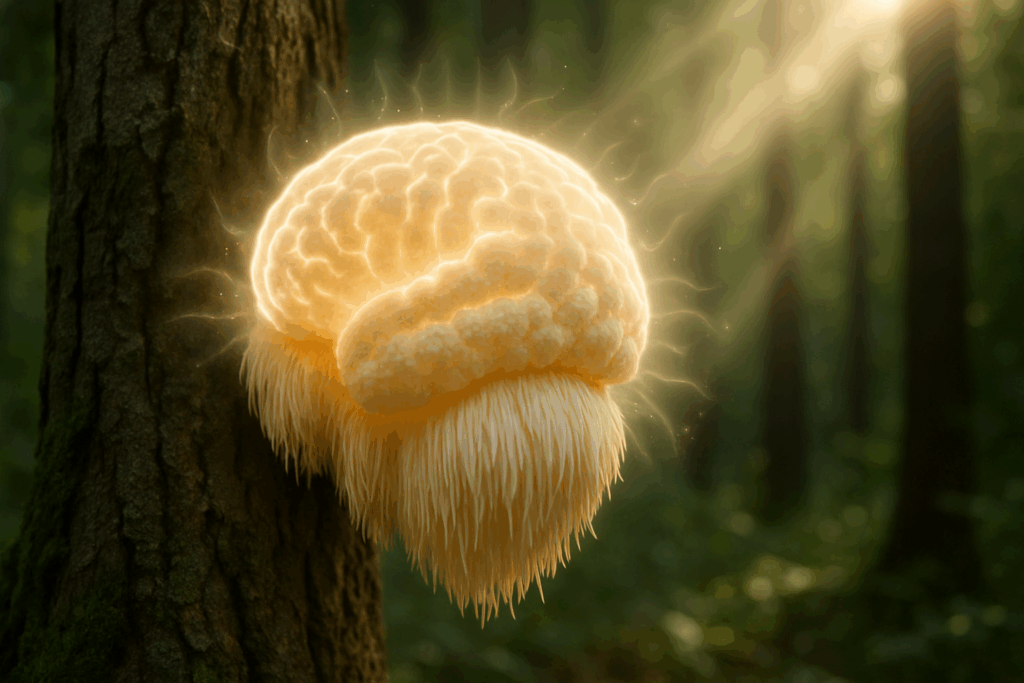
Rhodiola Rosea: Resilience and Mental Sharpness Under Pressure
In a world where decision making at work examples frequently involve tight deadlines and high stakes, the ability to maintain mental clarity under stress becomes vital. Rhodiola rosea, often dubbed the “golden root,” is an adaptogenic herb renowned for enhancing resilience to physical and cognitive stress.
Rhodiola supports neurotransmitters like serotonin and dopamine, both crucial for emotional regulation and cognitive function. When considering the seven steps of decision making or pondering what is the second step in the decision making process, having emotional balance is as critical as intellectual acuity. Rhodiola empowers individuals to make decisions quickly and accurately even under high-pressure conditions, making it a highly recommended herb for those in demanding professional or academic environments.
Gotu Kola: The Herbal Bridge Between Memory and Insight
Gotu Kola, sometimes referred to as the “herb of longevity,” has a rich history in both Ayurvedic and Traditional Chinese Medicine. Its benefits extend to improving memory, enhancing nerve function, and promoting better judgment making abilities. The herb’s impact on collagen production also translates into stronger blood vessel walls, indirectly promoting better cerebral blood flow.
For students asking how to remember things while studying or professionals working through the 5 steps of decision making, Gotu Kola presents an invaluable tool. Enhancing both memory retention and mental clarity, it can smooth out the transition between stages in the decision making process, ensuring each decision is informed, timely, and well-considered.
Lion’s Mane Mushroom: Neural Regeneration and Deep Focus
Lion’s Mane mushroom (Hericium erinaceus) has emerged as one of the most exciting natural nootropics due to its nerve growth factor (NGF) stimulating properties. NGF is essential for the growth, maintenance, and survival of neurons—meaning that Lion’s Mane can directly contribute to enhanced cognitive function and better judgment skills.
For individuals wondering how many steps are in the decision making process or seeking to master the seven steps of decision making, Lion’s Mane offers a biological advantage. Regular use has been associated with better recall, quicker problem-solving abilities, and a greater ability to synthesize complex information—all of which are vital for superior judgment making.
Sage: The Time-Honored Cognitive Enhancer
Sage (Salvia officinalis) has been historically revered not only for its culinary value but also for its cognitive-enhancing properties. Modern clinical trials have validated its effects on memory and alertness. Sage appears to inhibit the breakdown of acetylcholine, a neurotransmitter pivotal to learning and memory.
For students mastering how to memorize something for a test or adults trying to list the steps of decision making process effectively, Sage offers substantial cognitive support. Its influence extends to enhancing working memory and improving overall cognitive sharpness, making it a fantastic natural remedy for fostering better judgment skills.
Ashwagandha: Stress Reduction and Cognitive Stability
Ashwagandha (Withania somnifera) is another powerful adaptogen with profound effects on brain health. Its ability to lower cortisol levels makes it invaluable for those experiencing chronic stress, which often impairs sound judgment making.
Whether grappling with the five stages of decision making process or navigating the eight steps in the decision making process, Ashwagandha’s calming influence helps ensure that decisions are made thoughtfully and not in the throes of anxiety. Its neuroprotective properties also offer long-term benefits for cognitive resilience.
Rosemary: Stimulating Focus and Mental Energy
Often associated with culinary traditions, rosemary also boasts significant cognitive benefits. Its aroma alone has been shown to enhance memory retention and mental alertness. Active compounds like rosmarinic acid are thought to protect the brain from oxidative damage.
When considering what is the purpose of a decision or understanding which step comes first in the decision making process, maintaining optimal mental energy is crucial. Rosemary provides a natural boost to cognitive function, supporting the seamless flow through the various decision making stages.
The Science Behind Decision Making Processes: From Steps to Skills
Understanding the frameworks behind decision making is crucial for developing strong judgment skills. The classic 5 steps of decision making—identifying the decision, gathering information, evaluating alternatives, making the choice, and reviewing the decision—provides a streamlined approach. The 7 steps of decision making and the more elaborate eight steps in the decision making process offer even more detailed roadmaps.
Knowing what is the third step in the decision making process or how many steps are there in the decision making process isn’t just academic trivia. It reflects a commitment to systematic thinking. Herbs that enhance memory, focus, and stress resilience naturally strengthen one’s ability to progress thoughtfully through these stages, resulting in better outcomes in both personal and professional realms.
Practical Tips for Integrating Herbs into Your Daily Life
While herbs offer powerful support for judgment skills and decision making, how they are integrated into daily routines matters. Herbal teas, tinctures, capsules, and even culinary uses offer varied ways to introduce these cognitive allies into your life. Consistency is key; occasional use will offer limited benefits, whereas regular supplementation can lead to profound shifts in cognitive ability and mental clarity.
Choosing high-quality, organic products ensures the efficacy and safety of these herbs. Always consult a healthcare provider before starting any new supplement regimen, especially if you are taking prescription medications or managing chronic health conditions.

Frequently Asked Questions (FAQ) on Advanced Judgement Skills and Judgement Making
1. How can emotional intelligence enhance judgement skills in complex environments?
Emotional intelligence plays a pivotal role in refining judgement skills by helping individuals interpret not just facts but also underlying emotional cues. When facing high-stakes judgement making, understanding others’ emotional drivers allows for more empathetic, socially aware decisions. For instance, a manager resolving workplace conflicts with high emotional intelligence often achieves better long-term outcomes compared to those relying solely on logic. Strengthening emotional awareness thus sharpens both tactical and strategic judgement skills, ensuring more balanced and humane resolutions in complex environments. Investing in emotional intelligence training can significantly bolster judgement making capacity across personal and professional spheres.
2. What role does cognitive flexibility play in judgement making?
Cognitive flexibility—the ability to shift thinking strategies quickly—is a cornerstone of strong judgement skills. In dynamic situations, rigid thinking often leads to flawed judgement making, while flexible thinkers can adapt and reassess decisions with new information. Studies show that leaders with high cognitive flexibility outperform their peers in innovation-driven industries. Practicing activities like debating both sides of an argument or solving diverse types of puzzles can actively enhance cognitive agility. Over time, this fosters sharper, faster, and more accurate judgement skills even under pressure.
3. How does overconfidence bias impact professional judgement making?
Overconfidence bias can severely undermine judgement skills by inflating perceived knowledge and downplaying potential risks. In corporate environments, unchecked overconfidence often leads to poor investments, failed product launches, or strategic missteps. Research suggests that teams that openly discuss assumptions and error probabilities perform better in critical judgement making scenarios. Implementing systematic feedback loops and post-decision reviews can mitigate overconfidence, ensuring judgement skills remain anchored in reality. Encouraging humility and continuous learning is crucial for sustainable and responsible judgement making across industries.
4. Can mindfulness practices genuinely improve judgement skills?
Mindfulness exercises, such as focused breathing or body scanning, can substantially enhance judgement skills by cultivating present-moment awareness. Practicing mindfulness reduces impulsive reactions during judgement making and promotes more deliberate, thoughtful evaluations. Neuroscientific studies have demonstrated that mindfulness training strengthens prefrontal cortex activity, the brain area responsible for rational decision-making. In professional settings, executives trained in mindfulness report clearer judgement skills, especially in high-stress negotiations and crisis management. Incorporating even 10 minutes of mindfulness practice daily can lead to noticeable improvements in judgement making resilience over time.
5. What are some overlooked soft skills critical for superior judgement making?
While technical expertise is valuable, soft skills like active listening, curiosity, and adaptability profoundly shape judgement skills. Active listening ensures that important nuances are not overlooked during critical judgement making discussions. Similarly, a curious mindset drives the search for better information and alternative viewpoints, refining overall judgement skills. Adaptability allows quick adjustment when new realities emerge, preventing decision paralysis. Developing these soft skills not only enhances day-to-day judgement making but also builds long-term leadership credibility. Ignoring soft skills can create blind spots that even strong technical abilities cannot compensate for.
6. How does cultural intelligence affect judgement making in global contexts?
Cultural intelligence—or CQ—has emerged as a vital component of elite judgement skills in today’s interconnected world. Effective judgement making across cultures requires sensitivity to different communication styles, power distances, and conflict resolution norms. Professionals with high CQ are more adept at interpreting behaviors without falling into ethnocentric traps, thus making superior decisions in diverse environments. Multinational companies increasingly prioritize cultural training programs to strengthen judgement making competencies among their leadership teams. Enhancing cultural awareness amplifies not only strategic judgement skills but also fosters genuine inclusivity and collaboration.
7. How can practicing retrospective analysis strengthen future judgement skills?
Retrospective analysis—systematically reviewing past decisions—creates a powerful feedback loop for developing advanced judgement skills. By objectively examining what went right, what went wrong, and why, individuals sharpen their foresight and pattern recognition in future judgement making. Techniques like post-mortem analysis in project management are practical tools to embed this learning process. Over time, regularly practicing retrospective thinking helps professionals spot red flags earlier and design better contingency plans. Thus, retrospective analysis is an indispensable habit for anyone serious about continually upgrading their judgement skills.
8. Are there industry-specific nuances in how judgement making is applied?
Absolutely—judgement skills manifest differently across fields like healthcare, finance, engineering, and education. For example, in medicine, judgement making must balance evidence-based protocols with compassionate care tailored to individual patients. In finance, split-second judgement skills involving massive amounts of data can make or break portfolios. Meanwhile, educators apply judgement skills daily in interpreting student needs and dynamically adjusting teaching strategies. Recognizing industry-specific nuances helps tailor judgement making models appropriately, ensuring they remain both effective and ethically grounded. Specialized training in sector-relevant decision dynamics can greatly boost professional judgement skills.
9. How can technology both support and undermine judgement skills?
Emerging technologies like AI and predictive analytics offer powerful tools that can enhance judgement making—if used judiciously. On one hand, technology improves data-driven judgement skills by revealing hidden patterns and offering simulation-based foresight. However, over-reliance on algorithms without human critical thinking can erode intuitive and ethical judgement making over time. For instance, blindly trusting AI in hiring decisions may unintentionally perpetuate biases. Striking the right balance—augmenting human judgement skills with technological aids, not replacing them—is essential to future-proofing decision-making excellence.
10. What is the future of judgement skills development in professional education?
Professional education is rapidly evolving to prioritize judgement skills as a core outcome alongside technical knowledge. Leading MBA programs, medical schools, and executive trainings now embed judgement making modules that simulate real-world complexities rather than focusing solely on textbook knowledge. Future training will likely incorporate VR simulations, AI-driven scenario planning, and neurocognitive training to enhance judgement skills in immersive ways. Furthermore, lifelong learning models encourage continuous refinement of judgement making as careers and industries evolve. Thus, judgement skills are poised to become the defining metric of leadership and expertise in the next generation of professionals.
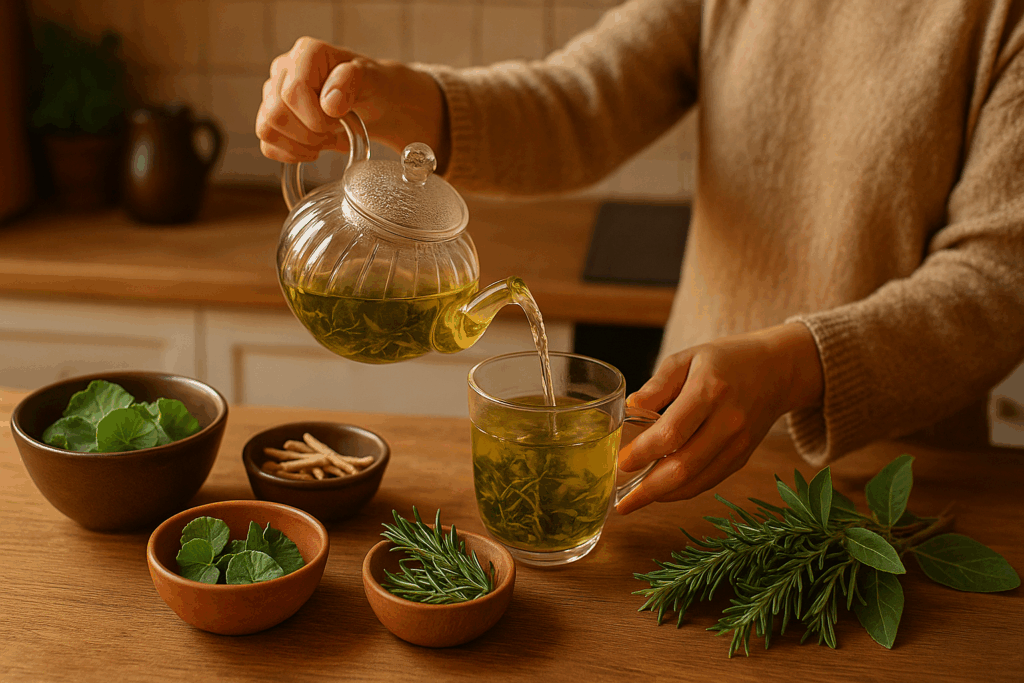
Conclusion: Sharpening Judgment Skills Naturally for Lifelong Success
Enhancing judgment skills and decision making abilities through natural means is not only possible but also highly practical. As we navigate an increasingly complex world, the ability to make decisions grounded in clarity, foresight, and confidence has never been more critical. Understanding how many steps are there in the decision making process, mastering the 7 steps of decision making, and reinforcing cognitive abilities through herbal support creates a powerful synergy for personal and professional success.
From ancient herbs like Ginkgo biloba and Gotu Kola to modern discoveries like Lion’s Mane mushroom, nature offers a rich pharmacopoeia for those seeking better judgment making. Integrating these herbs into your daily life provides a sustainable, evidence-based approach to sharpening mental clarity, enhancing memory, and improving decision making at work and beyond. Embrace the wisdom of nature and allow it to guide you in cultivating the judgment skills essential for a thriving, vibrant future.
Further Reading:
Judgment Skills: Definition and Examples
Sound Judgment and Decision Making: A Universal and Learnable Skill


